August 2022: The Month in Review
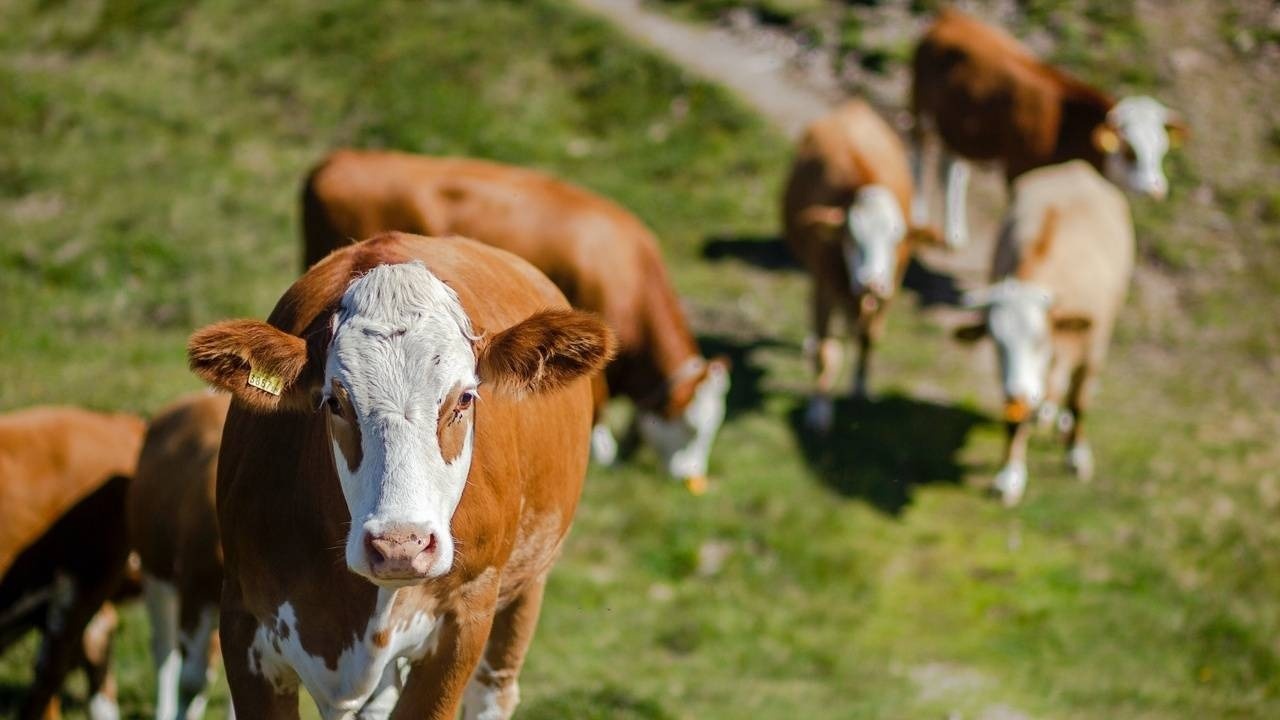
From China and Australia to Israel and the UK, this August continued the cellular agriculture field’s momentum through the end of summer. Along with new partnerships, including the first by two corporates looking into cell-cultured dairy, this August also featured the launch of the first cell-cultured dairy ice cream in Singapore.
From new investments to new product showcases, we look at what happened this August 2022 in cellular agriculture.
Investments
Changing Biotech
In August, China’s first cellular agriculture dairy company Changing Biotech announced $22 million in Series A funding to develop cell-cultured dairy in the country.
By designing microorganisms to produce the same dairy proteins found in cow’s milk, Changing Biotech aims to produce the same dairy products without requiring the animal.
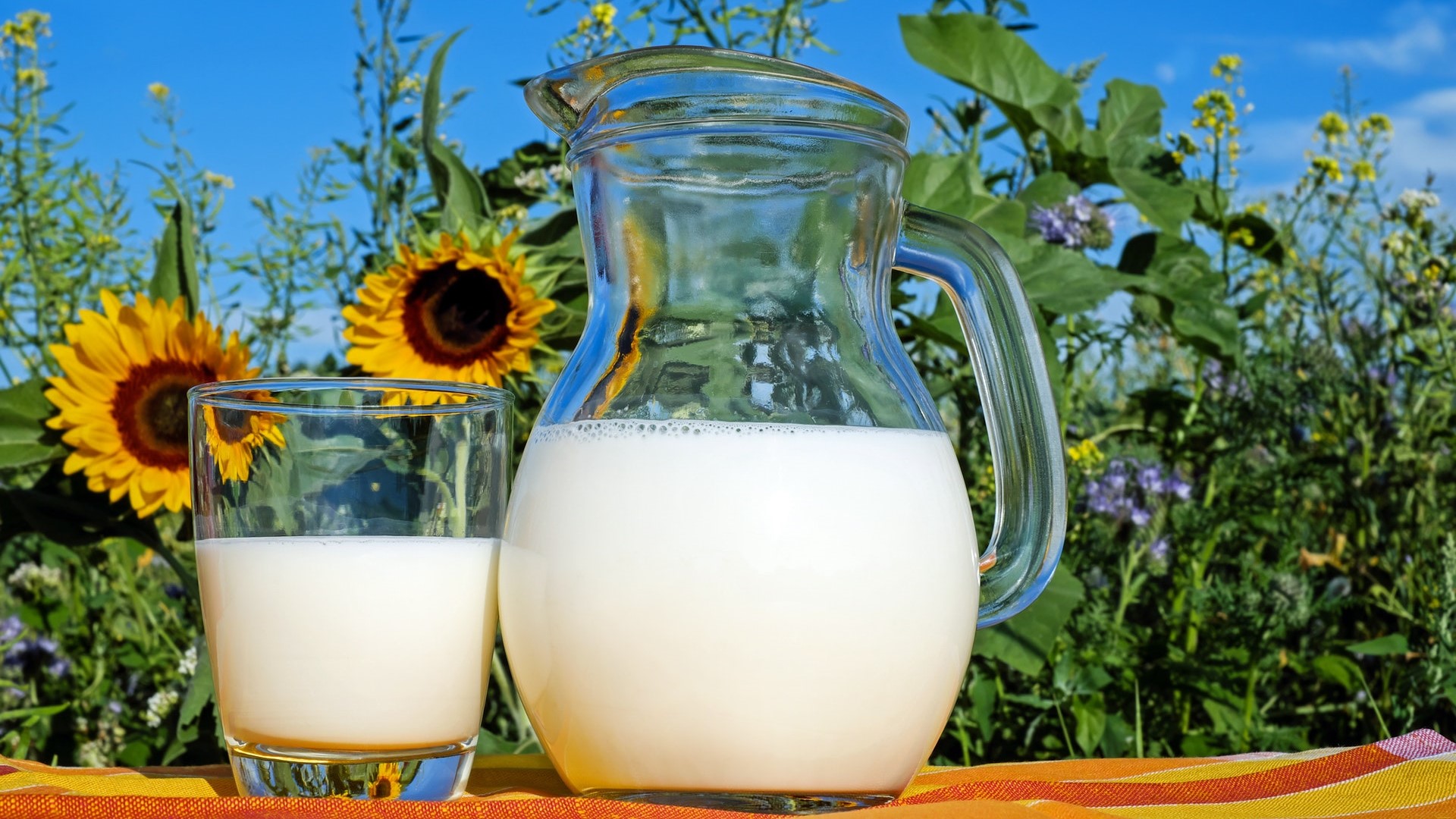
According to the announcement, Changing Biotech’s funding round was led by the venture capital firm Bits x Bites. The venture capital firm also previously invested in Changing Biotech’s undisclosed $8.5 million pre-Series A funding round.
With over $30 million in disclosed funding, Changing Biotech is the top-funded cellular agriculture food company in China. The new company is also among the top-funded startups focusing on cell-cultured dairy across Asia.
Moving forward, Changing Biotech is designing six new 50-ton production lines in a 9,000 sq. meter plant under construction. The company is already producing cell-cultured dairy protein samples from its 5-ton test facility in Qingdao, China.
Changing Biotech’s founder, Bin Luo, also shared that the company will apply for FDA approval for its cell-cultured dairy proteins this year.
All G Foods
At the start of August, alternative protein company All G Foods raised AUD $25 million in Series A funding. Based in Sydney, Australia, All G Foods focuses on developing acellular dairy proteins and plant-based meats. According to the announcement, the funding round will accelerate the production of its cell-cultured dairy platform.
 All G Foods cell-cultured dairy product line MilkCell
All G Foods cell-cultured dairy product line MilkCell
The startup shared that the fundraising is ongoing as part of a larger funding round. The Series A financing was led by venture firm Agronomics.
In September 2021, All G Foods raised $11.4 million (AUD $16 million) in seed funding. In February, the startup also received an undisclosed investment from W23, the venture capital fund operated by Woolworths Group.
Clean Food Group
New foodtech startup Clean Food Group raised £1.65 million (approx. US $2 million) in seed funding to develop cell-cultured palm oil. Licensing technology from the University of Bath, the new UK-based startup, aims to use yeast cell cultures to produce palm oil more sustainably without deforestation and biodiversity loss.

Moving forward, the startup aims to use the seed round to develop a large-scale pilot plant and invest in securing regulatory approval for its cell-cultured palm oil in multiple global markets. Venture capital firm Agronomics led Clean Food Group’s seed funding round.
Mermade Seafoods
Israeli startup Mermade Seafoods raised $3.3 million in seed funding to produce scallops via cellular agriculture. Mermade claims the company can harness the waste ammonia from the animal cells and feed it to algae.
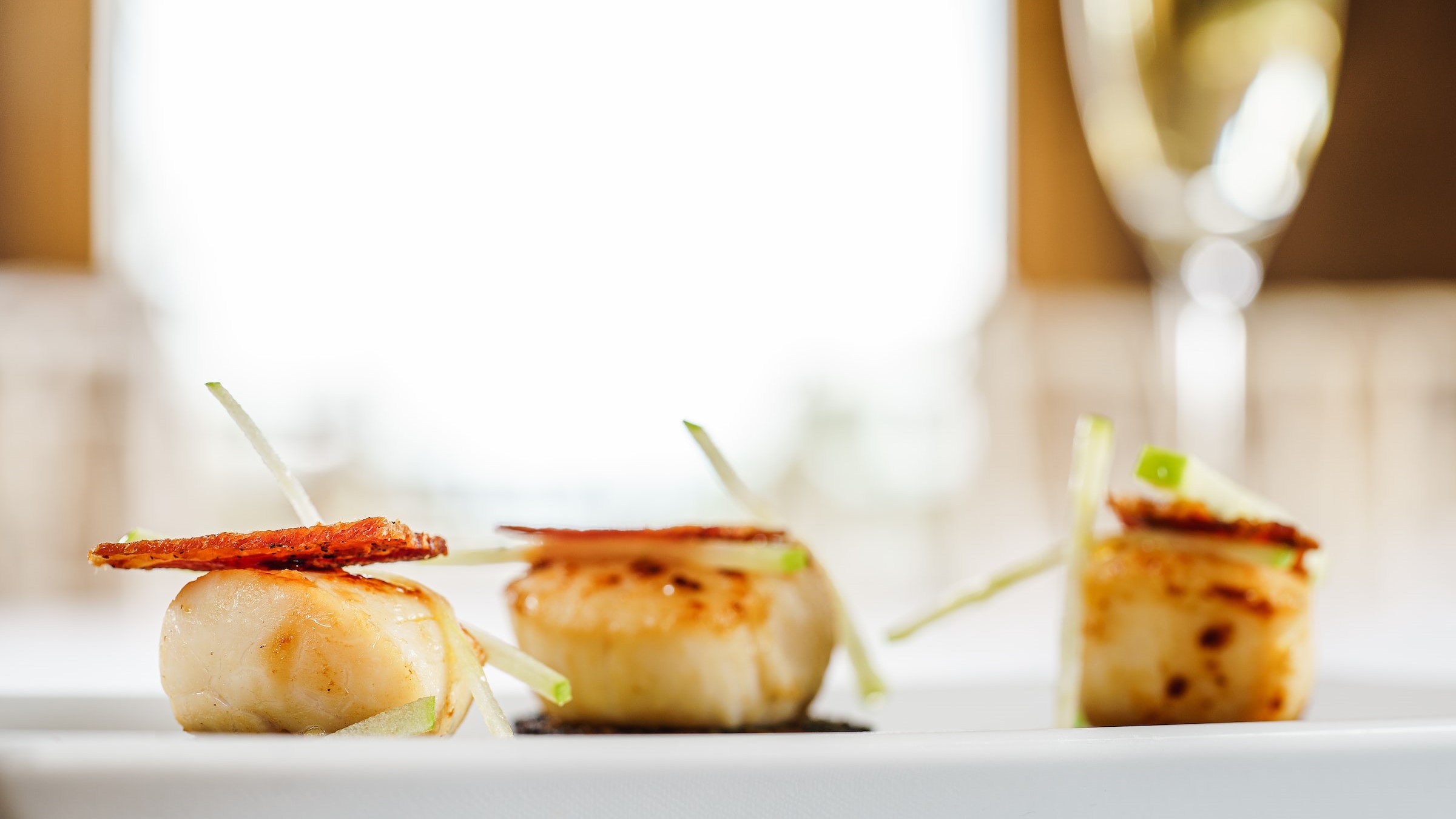
In turn, the algae can produce the growth media to feed the scallop cell culture. Dubbing the term cytoponics, Mermade claims this process can reduce the cost of the cell culture media between 55% and 90%.
Mermade Seafoods plans to use the funding round to hire stem cell and algae researchers and aims to scale to a laboratory scale in 2023. Investors in Mermade Seafoods' funding round include OurCrowd, Fall Line, and Sake Bosch.
Perfect Day Launches in Singapore
Cellular agriculture dairy company Perfect Day announced the launch of its first ice cream product in Singapore.
Through the launch of its Coolhaus ice cream brand, people in Singapore can now purchase animal-free dairy ice cream produced with Perfect Day’s cell-cultured dairy proteins for the first time.
 Coolhaus Ice Cream
Coolhaus Ice Cream
According to the announcement, Coolhaus ice cream will be available in six flavors containing Perfect Day’s animal-free dairy proteins. Coolhaus is currently available in various supermarkets across Singapore.
Perfect Day acquired the Coolhaus ice cream brand in December 2021 through its subsidiary The Urgent Company and reformulated Coolhaus’ ice creams to contain its cell-cultured dairy proteins.
The new product launch in Singapore further strengthens the nation’s position as a leader in the future of food field.
After becoming the first country to give regulatory approval for the sale of cell-based meat in 2020, Singapore is now the only country in the world where consumers can get both meat and dairy products produced via cellular agriculture.
Interestingly, while Singapore will likely be the first site of Asian expansion for many future food companies, Coolhaus’ launch in Singapore is Perfect Day’s second product in Asia. In January 2021, Perfect Day partnered with Igloo Dessert Bar to launch an ice cream product in Hong Kong.
Moving forward, Coolhaus plans to announce dessert creations with different restaurants across the island. To start, Coolhaus partnered with the Privé restaurant group to serve a Peanut Butter Ice Cream Pie at its restaurants.
In December 2020, a few weeks after Singapore approved the sale of cell-based meat, Perfect Day signed an agreement to set up a research and development lab in the country to support the company’s global research activities.
TurtleTree Announces first product brand LF+
Cellular agriculture dairy company TurtleTree announced its first product line: LF+, a bovine lactoferrin protein produced via precision fermentation (also known as acellular agriculture).

According to the TurtleTree team, lactoferrin is a dairy protein that is one of the key ingredients that gives human milk its uniquely beneficial properties. TurtleTree shared that the company has communicated with regulators and seeks opportunities with commercial partners to launch its LF+ to market by 2023.
TurtleTree Labs shared the company is also continuing to develop its technology to grow mammary gland cells that will produce cell-based dairy. TurtleTree first announced its interest in lactoferrin in June 2021.
Novel Farms showcases its first Pork Loin
In order to produce complex meat products, one area that the cell-based meat field needs to address is scaffolding production. Last week, cell-cultured meat startup Novel Farms showcased the first cell-based pork loin meat that demonstrated meat marbling.
 Novel Farms' pork loin prototype
Novel Farms' pork loin prototype
Founded by Nieves Martinez Marshall and Michelle Lu, Novel Farms shared that the company developed a proprietary microbial fermentation approach to produce scaffolding that enabled the marbling texture of its cell-cultured pork loin. The company claims that its scaffolding technology reduces the cost of scaffolding production by 99.27%.
Following the prototype, Novel Farms plans to raise a seed funding round. The startup intends to use the funding to hire a team to advance its technology platform.
Moving forward, Novel Farms aims to have its cell-cultured pork loin product in the hands of consumers in 2025, with commercial plants online in 2026, followed by mass production in 2027.
The startup previously raised $1.4 million in pre-seed funding through a SAFE note. Investors in the pre-seed round include Big Idea Ventures, Sustainable Food Ventures, CULT Food Science, Good Startup, and Joyance.
Bluu Seafood Showcases Cell-Cultured Fish Fingers and Fish Balls
Bluu Seafood showcased its first market-ready products: cell-cultured fish fingers and fish balls. According to the company, the product contains cell-cultured fish cells as the main ingredient with plant protein (soy and potato) added to optimize the cooking behavior and mouthfeel.
 Bluu Seafood's cell-cultured fish balls
Bluu Seafood's cell-cultured fish balls
Bluu Seafood aims to receive regulatory approval to launch in Singapore by the end of 2023. The company will also apply for regulatory approval in the UK and EU during the second quarter of 2023. Bluu seafood will also apply for approval in the US.
Bluu Seafood shared that the company will initially aim to partner with high-end restaurants while production capacity is limited until scaling. The startup aims to reach price parity with conventional seafood products in the next three years.
As Europe’s first cellular agriculture seafood company, Bluu’s product showcase is the first seafood showcase on the continent. Moving forward, Bluu Seafood plans to develop more complex products like cell-cultured sashimi and fish fillets.
Umami Meats Showcases First Cell-Cultured Fish Laksa in Singapore
At the end of August, cell-cultured seafood startup Umami Meats showcased the first cell-cultured fish ball laksa dish in Singapore. As the company’s first prototype, Umami Meats chose to make a laksa dish to embody Singapore’s rich food culture.
 Umami Meats' cell-cultured fish ball laksa
Umami Meats' cell-cultured fish ball laksa
The fish ball is a blend of cultured fish cells and plant protein to replicate the mouthfeel and structure of conventional fish balls. Umami Meats plans to develop several additional iterations of its fish ball prototype, including versions with cell-cultured fish muscle and fats.
Umami Meats shared that the company is working with the Singapore Food Agency to explore the regulatory approval process.
Future Meat Showcases Lamb Prototype
Cell-based meat company Future Meat Technologies announced that the company produced the first cell-based lamb meat prototype.
 Future Meat Technologies' cell-based lamb meat
Future Meat Technologies' cell-based lamb meat
According to the company, the lamb prototype marks a milestone in developing an ovine cell line that enables Future Meat to scale production of its lamb meat and accelerate innovation into other animal species. The company also shared that its lamb can be used to make burgers, kebabs, and other lamb meat products.
After raising one of the largest funding rounds to date for a cell-based meat company in 2021, Future Meat Technologies shared that the company is currently scouting locations in the US for its first production facility in the country.
Aiming to break ground on its production site in 2022, Future Meat also shared it will work with US regulators regarding its products and facility. The company initially aims to launch its cell-cultured chicken product in the US before launching its cell-based beef, pork, and lamb products soon after.
Ivy Farms Scales into Pilot Plant
Cell-based meat company Ivy Farm announced the official launch of its pilot production plant in Oxford, UK. Located near the Oxford University Engineering Department, the new facility is 18,000 sq feet and has a production capacity of 2.8 tonnes of cell-based meat annually. Ivy Farm claims that the pilot plant is the largest in Europe.
Moving forward, Ivy Farm aims to use the facility to advance its R&D capabilities to scale its production platform further. The pilot facility features 600L terminal bioreactors. Ivy Farm previously shared that the company aims to be the first company to launch a cell-cultured meat product in the UK.
Shiok Meats and Mirai Foods Partner to bring Cell-Cultured Beef to Singapore
Swiss cell-based meat company Mirai Foods and cell-cultured seafood company Shiok Meats announced a partnership to exchange know-how and supplies to bring cell-cultured beef meat to Singapore.
According to the partnership, Mirai Foods will supply Shiok Meats’ subsidiary Gaia Foods with its bovine muscle and fat stem cells to produce cell-cultured beef. In return, Shiok Meats will provide Mirai Foods with its advanced regulatory information and know-how to launch in Singapore.
The announcement earmarked Mirai’s regulatory dossier filing in Singapore as a key milestone in the partnership. Shiok also shared the company is eyeing producing its cell-cultured seafood in Switzerland.
Shiok Meats previously acquired Gaia Foods in August 2021, the first cell-based meat startup in Southeast Asia focusing on red meat.
New Culture and ADM Announce Strategic Partnership
Cellular agriculture dairy company New Culture announced a strategic partnership with global food and feed ingredients supplier Archer Daniels Midland (ADM).
 New Culture's cell-cultured mozzarella cheese on pizza
New Culture's cell-cultured mozzarella cheese on pizza
Based in San Leandro, California, New Culture uses cellular agriculture to produce the dairy protein casein, a key component of dairy cheese.
Considering ADM’s expertise in fermentation production, ADM will work with New Culture to scale the production of its cell-cultured dairy proteins and accelerate New Culture’s path to market.
The partnership will also allow the two companies to develop a wide range of products using New Culture’s cell-cultured casein proteins and ADM’s wide range of plant-based ingredients and flavors.
Moving forward, New Culture plans to launch its cell-cultured mozzarella cheese through the foodservice sector, like pizza restaurants, where most mozzarella cheese is consumed, in 2023.
Regarding regulation, New Culture shared that the company is going through the required steps to receive self-affirmed GRAS (Generally Recognized as Safe) status for its cell-cultured casein proteins before launching in 2023. New Culture also plans to notify the US FDA of its self-determination status.
While the partnership marks New Culture’s first collaboration to scale production, it continues ADM’s strategy to form partnerships with and invest in different companies in the cellular agriculture field.
In November 2018, ADM partnered with Perfect Day to scale the production of its cell-cultured whey proteins. More recently, in May 2022, ADM announced a joint development agreement with Eat Just to help Good Meat create an optimized cell culture growth media and improve the taste and texture of its cell-cultured meat products.
In addition, through its venture arm, ADM invested in New Culture’s $25 million Series A funding round in November 2021. ADM also previously invested in cellular agriculture companies Perfect Day, Geltor, and Future Meat Technologies
ADM and Asia Sustainable Foods Launch ScaleUp Bio
Agriculture and food corporate ADM and Temasek’s Asia Sustainable Foods announced the official launch of their joint venture company, ScaleUp Bio. Based in Singapore, ScaleUp Bio is the first company in the country to provide contract development and manufacturing services for precision fermentation (also known as acellular agriculture) for food applications.
Aiming to be operational by mid-2023, ScaleUp Bio’s facility will support fermentation capacities for acellular agriculture food applications up to 10,000L.
In addition, ScaleUp Bio announced a multi-year partnership with Singapore research agency ASTAR’s Singapore Institute of Food and Biotechnology Innovation (SIFBI) to establish a joint lab to support startups starting to scale production up to 100 liters in production capacity. The joint lab with SIFBI aims to be operational by the first quarter of 2023.
Upon maturity, startups can transition into ScaleUp Bio’s new facility that can support up to 10,000L fermentation capacity. The facility in the Tuas district is wholly owned by ScaleUp and aims to be operational by mid-2023.
Shiru Partners with Puratos to develop alternatives to conventional eggs
Baked goods ingredient maker Puratos announced a partnership with startup Shiru to identify and scale the production of alternatives to eggs for baked goods.
According to the announcement, Shiru will use its discovery platform Flourish to identify viable egg replacement proteins and use acellular agriculture (also known as precision fermentation) to produce the proteins of interest.
Shiru will then evaluate the proteins, and Puratos will leverage its fermentation capability to prototype the ingredients and explore their functionality for baked goods. Shiru previously announced a partnership with CP Kelco in March 2022.
Fonterra and DSM Partner to Launch Cultured Dairy Protein Startup
Dairy company Fonterra and Dutch multinational DSM announced that the two corporates will co-launch a startup to develop cell-cultured dairy protein products. This is the first time two major food and nutrition corporates have come together to launch a cellular agriculture startup focusing on dairy.
According to the announcement, Fonterra and DSM aim to leverage their expertise in dairy and precision fermentation, respectively, to develop cell-cultured versions of proteins found in dairy. Fonterra has previously invested in Motif FoodWorks, and DSM has partnered with and invested in Meatable. The new startup does not yet have a name but will be determined ahead of incorporation.
California Cultured Launches Cultured Coffee Initiative
What role will plant cell culturing play in the future of food? California Cultured announced that the startup partnered with the Finnish research center VTT to work on culturing cells from coffee plants.
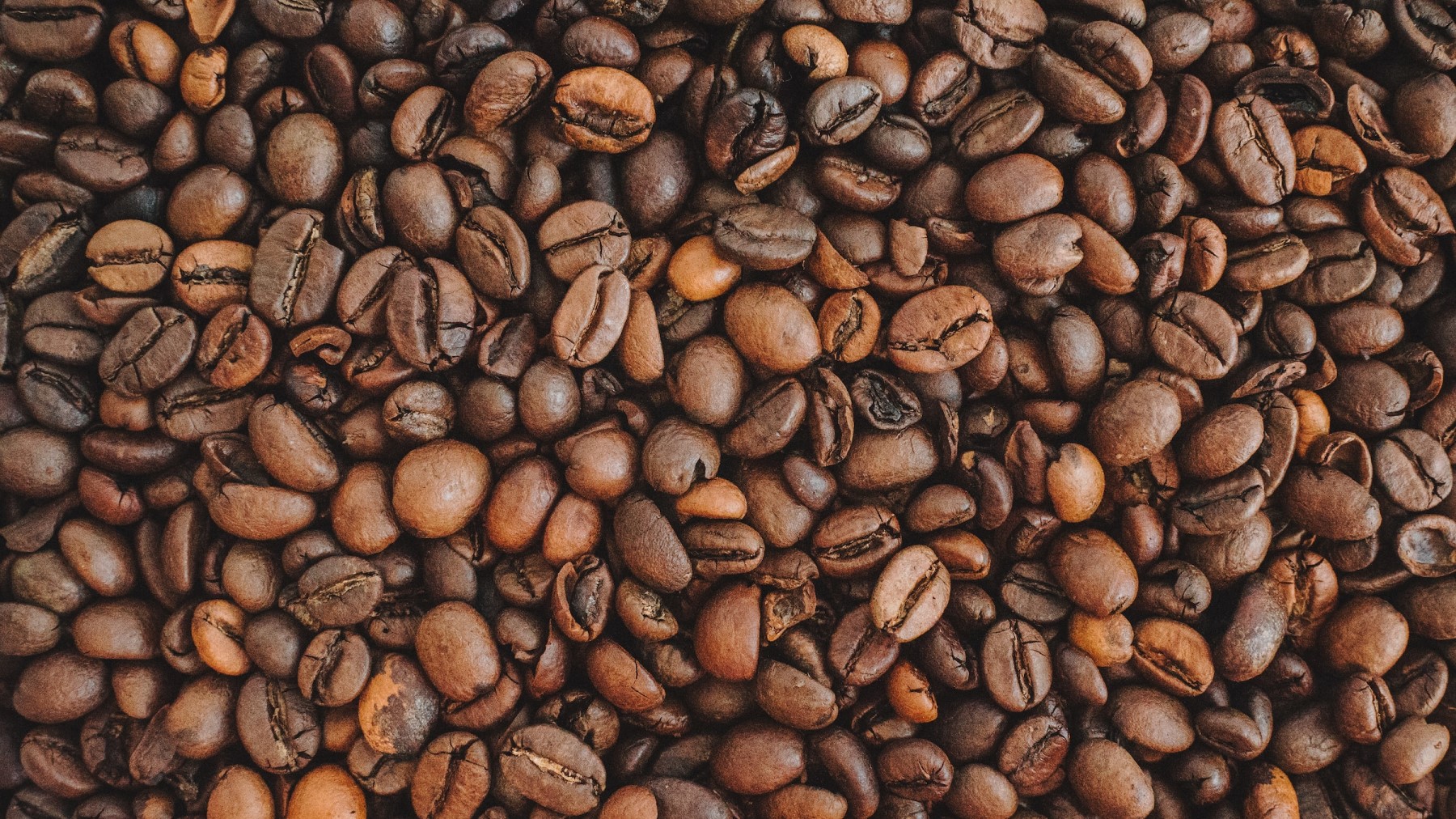
Considering the growing global demand for coffee and the impacts of climate change on producing it, California Cultured aims to work with VTT to make cell lines to produce cell-cultured coffee grounds.
California Cultured also shared moving into a new 12,000 sq. feet facility and pilot plant in West Sacramento, California. The startup raised its seed funding round in October 2021 to produce cocoa directly from cell cultures.
Eat Just receives a $25 million investment from Alibaba
Alternative protein company Eat Just announced an investment of $25 million and a strategic partnership from C2 Capital Partners, a private equity firm with the Alibaba Group as its anchor investor.
According to Eat Just, the investment will help with the company’s go-to-market strategies, including the regulatory approach, in China. Having previously launched its plant-based egg product in China, Eat Just plans to file for regulatory approval of its cell-cultured meat product this year.
Eat Just previously received regulatory approval for its cell-cultured meat in Singapore in December 2020. The following year, the company received further approval to launch new products in the country.
South Korean Government Plans Regulatory Framework for Cell-Based Meat
For the first time, the South Korean government plans to establish a unified regulatory framework for alternative proteins in its National Plan 2022, including for cell-based meat.
Specifically, South Korea’s Ministry of Food and Drug Safety (MFDS) called for official guidance on establishing a framework for evaluating the safety and manufacturing process of cell-cultured meat.
The MFDS also called for new food additive standards for foods produced by novel technologies, including alternative protein food products.
Considering that there is not a unified regulatory framework to approve alternative protein products in South Korea, it is promising to see the South Korean initiative to establish a regulatory framework around cell-based meat.
The guidance documents are expected to be finalized in 2022. Considering that the South Korean government has not officially commented on labeling, it is unclear what labeling for cell-cultured meat products would be.
Fooditive Plans to Develop Cultured Honey
Plant-based ingredient manufacturer Fooditive announced that the company has been working on developing cell-cultured animal-free honey. According to the company, its cell-cultured honey has the same texture, color, and properties as conventional honey from bees.
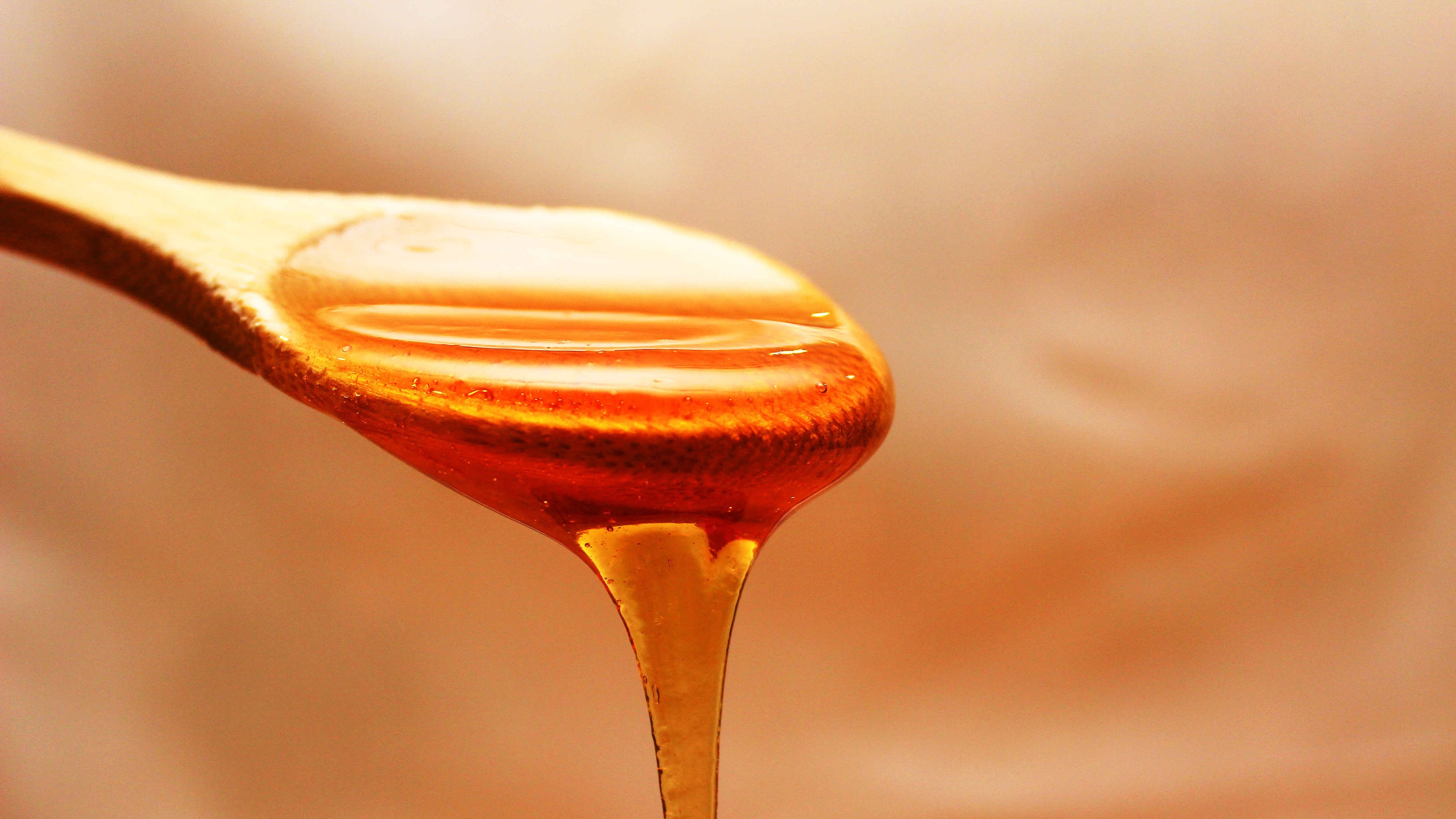
Fooditive plans to start product trials of its honey product next year. The company previously shared plans to develop cell-cultured casein proteins. In March 2022, MeliBio raised $5.7 million in seed funding to produce honey directly from cell cultures.
MeaTech 3D Rebrands to Steakholder Foods and Begins Developing Pork Products
Cell-based meat company MeaTech 3D recently rebranded to become Steakholder Foods (Nasdaq: STKH). As the first publicly traded cell-based meat company, the company rebranded to reflect how the company is enabling anyone to become a ‘steakholder’ in the movement to produce meat more sustainably.
In addition, the company announced that it would begin to develop cell-cultured pork products using a new cell line of porcine cells. According to the announcement, Steakhoder Foods partnered with a leading induced pluripotent stem cell provider to shorten the development timeline for more complex, structured pork products, like bacon, pork chops, and ham.
Steakholder Foods first shared its interest in developing cell-based pork in July 2021.
Aleph Farms Plans to Soft Launch in Singapore and Israel in 2023.
Cell-based meat company Aleph Farms shared plans to soft launch its cell-based beef steaks in Singapore and Israel next year. After moving into its pilot plant in Rehovot, Israel, in February, Aleph Farms also intends to build a larger facility towards the end of this year with an aim to launch in the US in 2024.
Interestingly, while the company looks to launch with thin steak cuts, Aleph Farms shared plans to develop a 3D-printing platform to help the company produce thicker steak cuts in the future.
The company currently aims to reach price parity with premium conventional beef steaks within five years of commercializing. Aleph Farms initially showcased its first commercial steak product in November 2020.
Chinese Scientists Develop Technology to Accelerate Cell-based Meat Scaling
What will the future of food look like in China? Researchers at Tsinghua University and Nanjing Agricultural University believe they have developed technology to accelerate the speed at which cell-cultured meat can scale.
Recently, in June, Nanjing Agricultural University spinoff Joes Future Food showcased a prototype of its cell-cultured pork belly and pigskin noodle. According to the startup, the prototype was the first pork belly showcase in the country that attendees could sample.
In May 2022, Chinese startup CellX announced its $10.6 million Series A funding round to develop a range of products, like cell-cultured pork.
Norway Approves Cellular Agriculture Research Project
The Research Council of Norway recently approved a cellular agriculture research project called ARRIVAL to explore cell-based technologies to produce the food of the future in the country.
Commencing in 2023, the ARRIVAL research project will have an annual project of EUR 2 million and will run for five years until 2027. The Norweigan Institute of Food, Fisheries, and Aquaculture Research (Nofima) will lead the project. The project will focus on cell-based meat and acellular agricultural research, including upcycling residual food biomass for the growth media.
Along with scaling technologies, the research projects will explore how different residual biomass from the food industry can be used as a growth medium for cell-based food production.
Researchers at UCLA explore the Role of Microcarriers in Cultured Meat Texture
Researchers at the University of California Los Angeles (UCLA) published a research paper outlining how they developed microcarriers to improve the texture of cultured meat at scale. The researchers showed that its edible microcarriers could help muscle cells grow more quickly to produce muscle-like tissue and reduce the cost, time, and waste of producing cultured meat with texture. The findings are published in the journal Biomaterials.
The Slowing Cellular Agriculture Investment Landscape
As the summer wraps up, CellAgri decided to break down the numbers behind the cellular agriculture food investment landscape to date for the year.
After the cellular agriculture food field raised $2 billion in total investments in 2021, the investment landscape had a strong start to the first half of 2022 with many notable milestones. However, compared to the third quarter of 2021, it has since slowed down.

As of the end of August 2022, the cellular agriculture food field has raised $862.9 million across 29 deals.
Most of the funding this year can be attributed to Upside Foods’ $400 million Series C in April and Remilk’s funding round of $120 million to make dairy proteins via acellular agriculture in January. Cell-cultured seafood company Wildtype also raised $100 million in Series B funding in February.
In total, the cellular agriculture field raised approximately $820 million in the first half of 2022 across 26 deals in comparison to approximately $645 million across 23 deals in the first half of 2021.
However, there is a significant difference between the third quarter of both years. In the third quarter of 2021, through 14 deals, the cellular agriculture field raised just under $700 million.
In comparison, there have only been three investment announcements so far in the third quarter of 2022, with a total value of $43 million, excluding cultured oil. While there is still one month to go in the quarter, it highlights that the investment may not grow at the same rate as the end of last year.
In fact, July 2022 was the first month since April 2020 when there were no new investment announcements. Considering the current economic climate, it will be interesting to see how the investment landscape shapes for the year's second half.
Having said that, there are notable landmarks that the cellular agriculture food landscape achieved this year. Following Upside Foods’ funding round, the cellular agriculture meat sector reached $2 billion in total investments.
Additionally, the cellular agriculture dairy field reached the milestone of $1 billion in total investments. This landmark includes funding from companies focusing on both acellular (also known as precision fermentation) dairy and cell-based dairy.
To reflect the ever-changing cellular agriculture landscape, we are currently updating the CellAgri Investment Report & Insights series.
If you are interested in keeping up with the field’s investment landscape and the cell-based meat supply chain, sign up here to learn when the latest CellAgri Investment Insights platform will be available.
Conclusion

Following a steady July that featured no new investments, August marked a strong end to the summer of 2022 for the cellular agriculture field. With four new investments and product showcases, August also featured the launch of Perfect Day’s cell-cultured dairy ice cream in Singapore.
Along with Perfect Day’s launch, Singapore continues to position itself as a leader in the future food ecosystem with an increased focus on the precision fermentation (or acellular agriculture) sector. In particular, ADM’s partnership with ASTAR and Temasek’s Asia Sustainable Foods means that startups looking at precision fermentation will have access to all the infrastructure to get started and scale faster without building their own facilities.
Along with the partnership with New Culture in the US, ADM continues to position itself firmly within the field.
Changing Biotech’s funding announcement also marks a solid end to summer for the cell-cultured dairy sector, particularly within the Asia-Pacific region. In Australia, Eden Brew raised its funding round in June to develop its cell-cultured dairy technology platforms. In addition, Change Foods received multiple grants from the Australian government in May 2022.
As a first step towards regulating cell-cultured meat, the South Korean government’s interest in establishing a regulatory framework for cell-based meat highlights the growing cellular agriculture ecosystem in the country. In May 2022, South Korean startup Space F and its partners received a government grant of $15 million to research developing and scaling cultured meat production equipment.
More recently, after showcasing the first cell-cultured Dokdo shrimp prototype in December 2021, cell-based meat startup CellMeat showcased its shrimp products in Seoul in a variety of dishes in July. CellMeat also raised $8.1 million in Series A funding in April 2022.
South Korean cell-based meat startups DaNAgreen and SeaWith also raised funding rounds this year in January and February, respectively.
Stay connected with CellAgri
Join our mailing list to receive the latest news and updates weekly from the cellular agriculture industry. Your information will not be shared.



